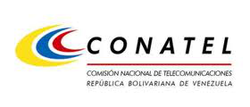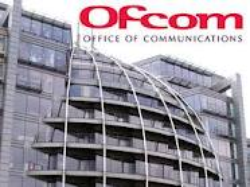Updated: Sept. 25, 2012 (Initial publication: Dec. 12, 2011)
Sectorial Analysis

Translated Summaries
In The Journal of Regulation the summaries’ translation are done by the Editors and not by the authors
ENGLISH
On July 28, 2011, the European Court of Justice rejected an appeal by an Italian digital terrestrial broadcaster against a ruling of the European General Court, which had also rejected an appeal against the European Commission’s condemnation of Italy for having subsidized the purchase or rental by consumers of equipment for the reception of digital terrestrial television broadcast signals, since this was an indirect provision of state aid to the broadcasters.
FRENCH
Le 28 juillet 2011, la Cour de Justice de l’Union Européenne a rejeté un appel interjeté par un radiodiffuseur italienne numérique terrestre contre une décision de la Cour européenne de première instance, qui avait également rejeté un recours contre la condamnation prononcée par la Commission européenne de l’Italie pour avoir subventionné l’achat ou la location par le consommateurs d’équipements pour la réception de télévision numérique terrestre des signaux de télédiffusion, puisque ce fut une prestation indirecte, constitutive d’aides d’Etat au bénéfice des radiodiffuseurs.
SPANISH
El 28 de julio de 2011, el Tribunal Europeo de Justicia rechazó una apelación de un emisor italiano digital terrestre contra una resolución del Parlamento Europeo y del Tribunal General, que había rechazado también un recurso de apelación contra la condena de la Comisión Europea de Italia por haber subvencionado la compra o el alquiler de los consumidores de los equipos para la recepción de señales digitales terrestres de televisión, ya que esta era una disposición indirecta de las ayudas estatales a las emisoras.
DEUTSCH
Am 28. Juli 2011 hat der Gerichtshof der Europäischen Union eine Beschwerde von einem italienischen digitalen terrestrischen Sender zurückgewiesen gegen eine Entscheidung des Europäischen Gerichts Erster Instanz, die auch abgelehnt hatte Einspruch gegen der Überzeugung, in der Europäischen Kommission Italien nach dem Kauf oder Leasing von der Consumer-Geräten zum digitalen terrestrischen Fernsehsignale empfangen subventioniert haben, da es ein indirekter Nutzen war, um eine staatliche Beihilfe für Broadcaster.
ITALIAN
Il 28 luglio 2011, la Corte di Giustizia Europea ha respinto un appello di emittente italiana di digitale terrestre promosso contro una decisione della Corte generale europea. Anche tale Corte aveva respinto l’appello promosso contro la decisione della condanna dello Stato italiano per aver sovvenzionato l’acquisto o l’affitto da parte dei consumatori di un decoder, in quanto costituirebbe un aiuto statale indiretto alle emittenti.
.................
Other translations forthcoming.
Updated: Aug. 28, 2012 (Initial publication: Aug. 24, 2012)
Breaking news

Updated: July 9, 2012 (Initial publication: June 30, 2012)
Breaking news

Updated: July 2, 2012 (Initial publication: June 22, 2012)
Breaking news

Updated: May 9, 2012 (Initial publication: April 12, 2012)
Breaking news

Updated: May 9, 2012 (Initial publication: April 23, 2012)
Breaking news

Updated: May 9, 2012 (Initial publication: May 3, 2012)
Breaking news

Updated: Dec. 21, 2011 (Initial publication: Dec. 12, 2011)
Contributions

Updated: Dec. 9, 2011 (Initial publication: Oct. 12, 2011)
Contributions

